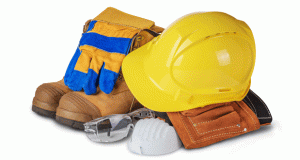REDUCING THE STIGMA
Another key aspect, says Cottam, is the way in which employers address the stigma around mental health. For example, people are often afraid of opening up about mental health problems for fear of being side-lined. This is a strong theme of Time to Change, and Mates in Mind provides the practical resources and relationships to help.
“Overcoming the stigma can be achieved in different ways,” he says. “Our group HSEQ director introduced us to the Time to Change movement, and in the middle of that we developed our relationship with the British Safety Council and Mates in Mind. We then presented it back to our people by talking about HSE statistics on stress and mental ill-health, and how mental health feeds into our health and wellbeing strategies.
 “In the same way that safety went from warnings and prosecutions to promoting a safer zero harm culture, the same needs to go for mental ill-health. This is why at VINCI we start all our conversations with ‘how are you?’, not just as a standard greeting but with the ethos that ‘if you’re not OK I’m not, and the people under you won’t be’.”
“In the same way that safety went from warnings and prosecutions to promoting a safer zero harm culture, the same needs to go for mental ill-health. This is why at VINCI we start all our conversations with ‘how are you?’, not just as a standard greeting but with the ethos that ‘if you’re not OK I’m not, and the people under you won’t be’.”
Adds Hails: “You have to have senior level commitment, so it must be more than a tick box, or paying lip service to reducing stress if you’re working people into the ground. It’s about being authentic and genuine in your approach, which is why senior leaders have to lead the way.”
One of the primary aims of the charity is overcoming the stigma that surrounds mental ill-health, and – in a sector with a high number of male workers – addressing the specific risks for men. As a director of an FM business which is part of a construction group, Cottam acknowledges the challenge of addressing the stigma of mental ill-health within such a male-dominated sector. “FM can be a stressful job, and having the right level of stress helps performance, but you’ve also got to recognise when someone is at a tipping point. There’s a difference between stress and feeling mentally drained. People put pressure on themselves and keep pushing themselves.”
He says he is encouraged by the change of attitude he has noticed, with the biggest conversation at VINCI’s recent annual supplier safety day being about mental health and wellbeing.
For his part, Hails is optimistic about the progress being made: “We will obviously draw parallels with the journey we went on with safety, but I think when it comes to mental health we’re on a much steeper curve. We are getting closer to where we need to be much more quickly than we did with safety. That’s partly down to the way society has grasped the mental health agenda, and we’ve been assisted in particular by Princes William and Harry. But it can still surprise me. At Tideway we run an annual survey on health and safety, and last year 75 per cent of staff strongly agreed they were happy to talk to their line manager about mental wellbeing, which is the message we’re sending out with Mates in Mind.”
The charity is certainly showing the wider built environment what can be done. As Cottam remarks, the majority of construction firms proudly show off their British Safety Council logo, and more and more are happy to sport the Mates in Mind logo as well, “which shows that people within that organisation care about the mental health of their staff, suppliers and other stakeholders.”
GOOD FOR BUSINESS
Hails points out that if you don’t create an environment that is diverse, inclusive and supports employees and anyone who works for them, how do you ever expect to attract people into the industry? He believes strongly that if you are a leader in any business, it is your responsibility to understand your team – not just what their job entails, but what makes them tick. Without undue prying into people’s personal lives, it means creating an environment where you can help them manage their issues.
“If you’re in the dark and don’t create that type of environment, you will never get the information you require to manage that situation,” he says. “I was astonished to find that 75 per cent of those who identify as LGBT+ working in construction go back in the closet when they come to work. That is an astonishing figure. If you’ve got an individual who can’t be themselves, they’re going to leave.
“If you’d said to me five years ago that we’d be running mindfulness sessions – not just within the office environment but on our construction sites – I would have laughed, but Mates in Mind is about reducing stigma. It’s about having a conversation, looking at statistics that reinforce how to tackle mental ill-health, talking to people and getting them involved with training schemes that they can take back into your business. In this way mental good health is going to be at the core of every business. And it makes good business sense.”
 Time to Talk
Time to Talk
Time to Change organised a Time to Talk Day on 7 February to give everyone a chance to have a conversation about mental health. The event was backed by VINCI Facilities and other employers.
As part of VINCI Construction UK, VINCI Facilities signed up to the Time to Change employer pledge in 2017, committing itself to creating a workplace free from stigma and discrimination. The pledge makes up a central part of the company’s fairness, inclusion and respect agenda. VINCI worked with Time to Change on an action plan to get employees talking about mental health.
Time to Change is England’s biggest initiative for raising awareness of mental health and challenging stigma and discrimination. It is run by charities Mind and Rethink Mental Illness and is funded by the Department of Health, Comic Relief and the Big Lottery Fund. It’s a growing social movement working to change the way everyone, in all walks of life, thinks and acts about mental health problems.
For more information about Time to Talk Day, visit www.time-to-change.org.uk/get-involved/timetotalkday2019




